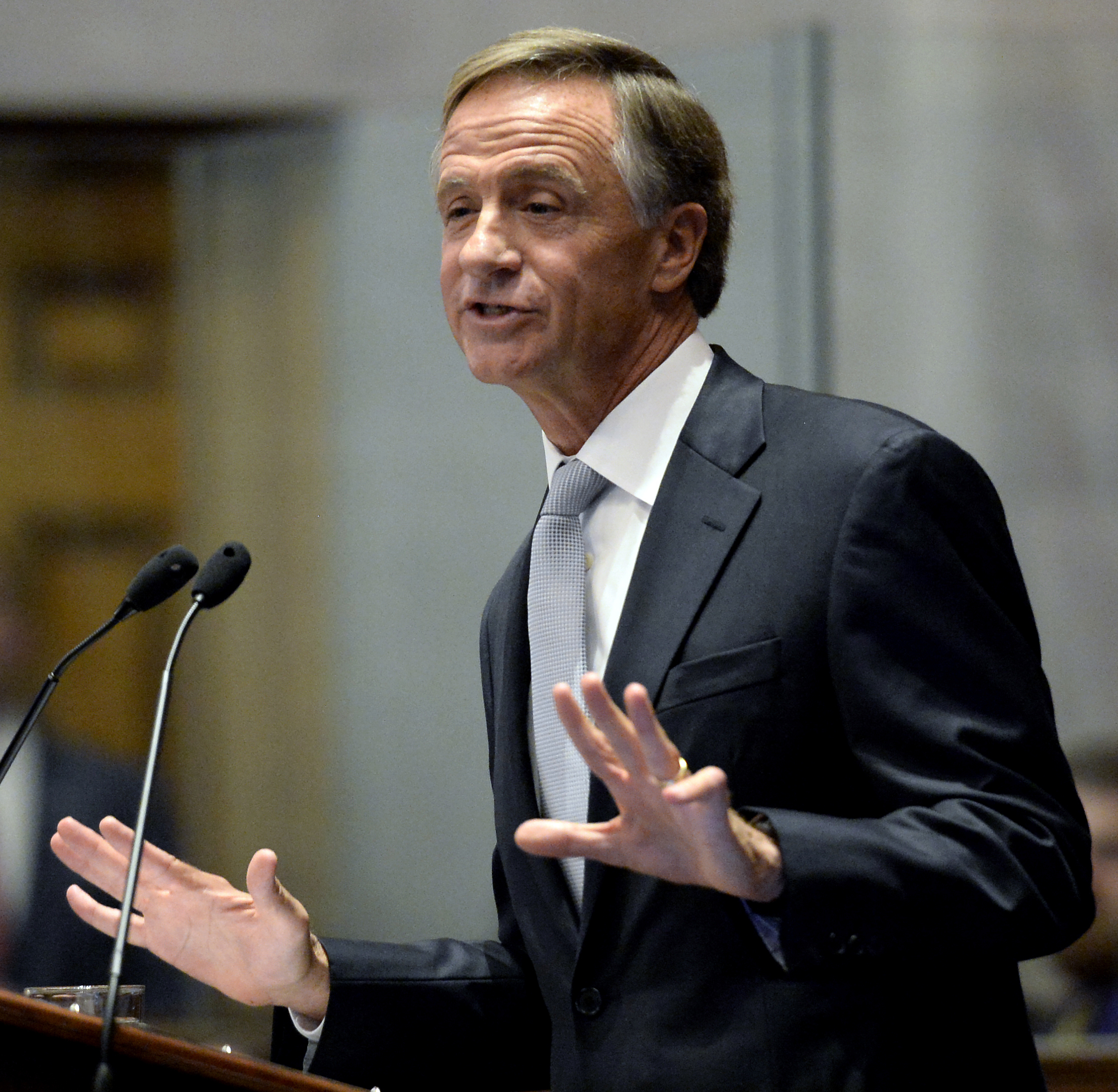NASHVILLE - A weekslong legislative stalemate between Gov. Bill Haslam and health providers over the administration's proposed crackdown on narcotic painkiller prescriptions largely has been resolved, top lawmakers say.
Both sides wound up ceding ground in the legislation, which places new limits on short-term prescriptions of opioids in a state where officials say there is a crisis with more than 1,600 residents dying from drug overdoses in 2016 alone.
Haslam and administration officials argue they want to curb new cases of narcotic painkiller addiction arising from prescriptions in areas ranging from surgeries to major dental work and broken bones.
But doctors, dentists and pharmacists said the governor's originally proposed prescription limits, which mostly affect new patients dubbed the "opioid naive," were too harsh. They also argued they interfered with the physician-patient relationship and imposed new, administrative burdens on them.
Another argument was that the governor's proposal forced patients back to see their health care practitioner for a new, short-term prescription.
The dispute resulted in a House GOP-run panel siding with providers, then substituting and moving their own less-stringent alternative to Haslam's bill. The governor's bill was left in the dust.
Senators, meanwhile, stuck pretty much with Haslam's original measure. The dispute resulted in four or five behind-the-scenes meetings among administration officials and representatives of doctors, dentists and pharmacists to find something all could live with.
Senate Majority Leader Mark Norris, R-Collierville, who is carrying the governor's bill, said Thursday that "I feel confident that we've come to an accord," then wryly added that "from my standpoint, we've bought peace."
"From what the pharmacists are telling us and the practitioners - the prescribers - it's a heck of a lot better than doing nothing," Norris said. "And it's drawn a lot of attention to prescribing practices. And without unduly infringing on their discretion, we think this will [work]. Clearly, it had gotten out of hand."
Sen. Steve Dickerson, R-Nashville, a physician, called the agreement a "good compromise," adding "it's nice when you have a piece of public policy that nobody is 100 percent happy with - everybody's about 80 percent happy."
House Health Committee Chairman Cameron Sexton, R-Crossville, who had sponsored the opioid bill alternative to Haslam's plan, also said the compromise has resulted in a "good bill."
"It keeps the doctor in charge of their practice," Sexton added. "It doesn't come in between the physician-patient relationship. We don't intervene in the practice of medicine, and it sets some limits on thresholds [amounts, lengths of medications prescribed]."
On Wednesday, members of the respective Senate Health Committee and the House Health Subcommittee inserted the compromise into the governor's bill and moved them out for other panels' consideration.
Haslam's original, multifaceted plan, dubbed "TN Together," sought to address opioid addiction prevention by limiting the supply and the dosage of painkillers with what the administration called "reasonable exceptions" and an emphasis on new patients.
Initial prescriptions would have been limited to a five-day supply of opioids, with daily dosage limits of 40 MME (morphine milligram equivalent). It also required doctors and dentists to run a patient's name through the state's controlled substance monitoring database.
But practitioners complained the one-size-fits-all approach would create problems for patients who were in pain and for health providers as well. Checking the database would require more staff and training, they argued.
Under the compromise, doctors and dentists can write up to a three-day opioid prescription, totaling 180 MME dosage, without having to check the controlled substance monitoring database. Nor would they have to have a patient sign an informed consent statement stating they had been cautioned about the dangers of opioid addiction.
But if practitioners write up to a 10-day prescription totaling 500 MME, health practitioners would have to check the database, which is intended to curb doctor shopping, as well as conduct a thorough evaluation of the patient, have written documentation of the patient's informed consent, document their consideration of alternative pain treatments and explain why they opted to prescribe an opioid.
The practitioners would also have to include the International Classification of Diseases code, which is used to classify and code all diagnoses, symptoms and procedures recorded in conjunction with hospital care in the U.S. Similar provisions apply for prescriptions of up to 20 days.
Beyond three days, new patients could get no more than half of any prescribed amount at one time. Patients could then go to their pharmacist if they needed the remainder of the pills from their prescription.
Other conditions apply for prescriptions up to 30 days.
Basically excluded from both Haslam's original bill and the compromise are many current longterm users of the drug with legitimate pain issues.
That exclusion list includes cancer patients, patients in end-of-life hospice care, patients in a licensed health care facility, patients with sickle cell disease, patients with severe burns or major trauma and those who have been treated with an opioid for more than 90 days, according to a description of the agreement.
But health care practitioners would have to include the ICD code and the word "exempt" on those prescriptions.
Other provisions of the governor's overall plan include spending more than $25 million in state and federal funds for treatment and recovery services for individuals with opioid use disorder. Other legislation is pending that expands residential treatment and services for opioid dependence within the criminal justice system. The bill also creates incentives for offenders who complete intensive treatment programs while incarcerated. And the Tennessee Bureau of Investigation would get 10 new agents.
Contact staff writer Andy Sher at asher@timesfreepress.com or 615-255-0550. Follow him on Twitter @AndySher1.

